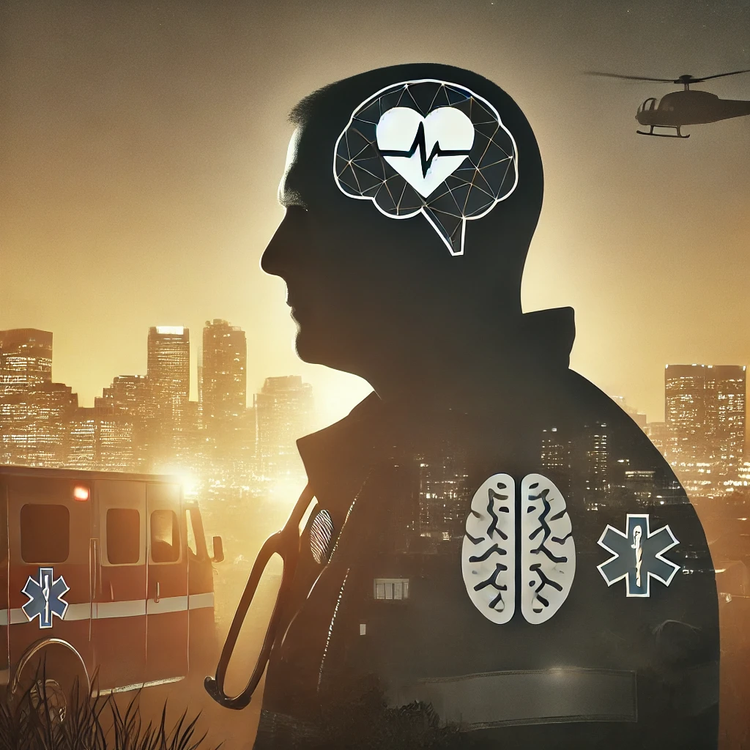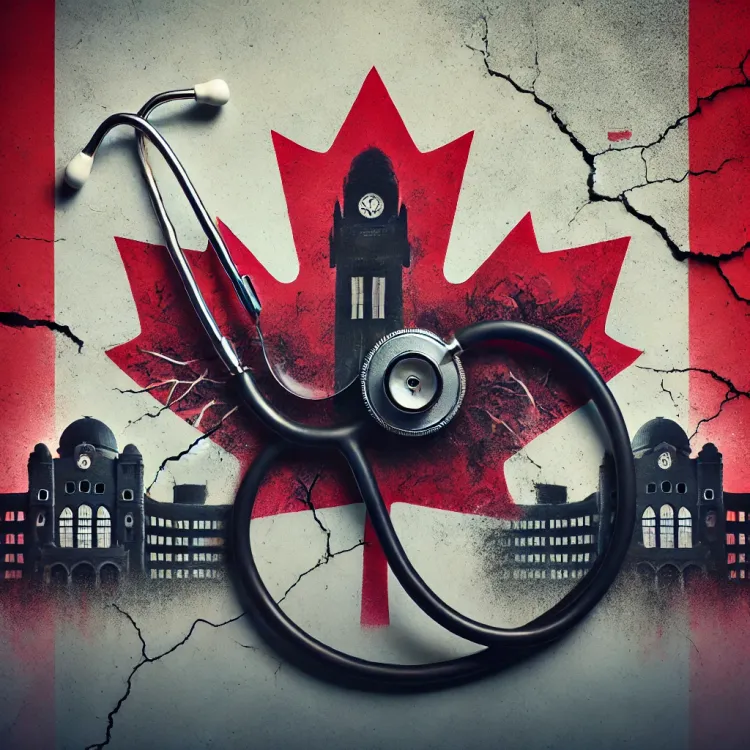Empowering Military Healthcare Providers: A Focus on Mental Health Training

In the sprawling theatre of war, where chaos and valor intertwine, our brave soldiers march forward, resolute and unwavering. These warriors dedicate their lives to defending our nation, braving the storm of combat and staring down the face of danger with unyielding determination. Amidst the battlefield's aftermath, a different set of heroes emerges—the unsung guardians of health in the military. These are the military healthcare providers, the medics, doctors, and nurses who tirelessly tend to the wounded and mend the broken, both in body and spirit. This article embarks on a compelling journey to shed light on the imperative need for enhanced mental health training for these unsung heroes, highlighting the often-neglected challenges they confront and championing a call for comprehensive support.
The Unseen Scars of Battle
War is an entity that leaves indelible marks far beyond the realm of the physical. Studies indicate that a significant percentage of military personnel, including healthcare providers, experience PTSD, depression, and anxiety disorders, reflecting the profound emotional impact of war. Every soldier, no matter how battle-hardened, emerges from the crucible of combat bearing the unseen scars of emotional trauma. The psychological toll of witnessing unspeakable horrors, experiencing the pangs of loss, and confronting the specter of violence can carve deep grooves in the psyche.
It's not only the trigger-pullers who shoulder this burden; the support staff, the medics, and the healthcare providers in the military ecosystem also stand at the crossroads of trauma and resilience. Captain John Doe (pseudonym), a military nurse, shared, "Every day, we're on the front lines of pain and despair, trying to heal wounds that are both seen and unseen. The emotional residue is sometimes the heaviest to carry."
Gone must be the antiquated notion that the warriors and healers of the battlefield are immune to the emotional ravages of conflict. Acknowledging that even the bravest hearts can harbor the wounds of war is a crucial step toward creating a more empathetic and supportive environment. When our healthcare providers are ill-equipped to navigate these challenges, they become susceptible to becoming casualties themselves, victims of the very battles they're committed to mend.
Recent systematic reviews and meta-analyses have illuminated the stark reality of mental health conditions within military populations. Research indicates that up to 30-35% of military personnel deployed in combat zones experience significant mental health conditions such as PTSD, depression, or anxiety disorders. Furthermore, another study notes that military healthcare providers, given their dual exposure to the trauma of warfare and the suffering of their patients, are particularly susceptible to burnout and secondary traumatic stress. These providers often exhibit higher rates of these conditions compared to their civilian counterparts in emergency departments and trauma units, underscoring the unique psychological toll of their roles. The prevalence of such issues not only affects individual well-being but also has broader implications for military readiness and operational effectiveness.
The Hidden Struggles of the Healers
Within the stark and often desolate landscapes of conflict zones, military healthcare providers embody the juxtaposition of life’s fragility and the human spirit’s resilience. They are the keepers of calm amidst chaos, the bearers of hope in despair.
Dr. E.W, a military psychiatrist with over fifteen years of experience in active conflict zones, has witnessed the evolution of war’s psychological landscape. "When I first donned my uniform," Dr. E.W recounts, "I was armed with medical knowledge but naively unprepared for the war’s emotional carnage. Each deployment, each soldier I’ve counseled, has been a brushstroke in the intricate painting of my career. The resilience of the human spirit astounds me, yet the shadows of grief and trauma are omnipresent, lingering long after the battle cries fade."
Her journey, marked by a relentless pursuit to understand and alleviate the mental wounds of war, reflects a deep commitment to her comrades and her own mental fortitude. Dr. E.W narrative is not just her own but echoes the silent battles fought by many in her field.
Adding to this chorus of voices is Staff Sergeant L.B.R, a tactical paramedic with a decade of service in some of the most volatile environments worldwide. "Being a tactical paramedic is about more than quick medical response; it's about stability in instability," Staff Sergeant L.B.R explains. "Each mission tests the limits of my training and my emotional endurance. The immediacy of trauma care on the battlefield is a relentless teacher—every decision, every action is etched in your memory, often replayed in the quiet moments that follow."
L.B.R's experience sheds light on the unique challenges faced by those who operate at the intersection of medicine and combat. "There's an unspoken bond among us," he continues, "a recognition of the burdens we carry. We save lives, but in the process, we’re also grappling with the enormity of human suffering, our own vulnerabilities laid bare against the backdrop of war."
The stark realities shared by Dr. E.W and Staff Sergeant L.B.R underline the complex tapestry of experiences that define the role of military healthcare providers. Their testimonies reveal not just the external challenges of their duties but the internal battles that accompany their noble endeavor.
As they navigate the dichotomy of strength and vulnerability, their stories are a potent reminder of the need for comprehensive mental health support systems. These systems must not only address the immediate stresses of combat but also the lingering emotional and psychological toll that can shadow these professionals throughout their careers.
Revolutionizing Mental Health Training
The mission to revolutionize mental health training for military healthcare providers is more than an educational reform; it's a strategic imperative to safeguard the mental fortitude of those who stand on the front lines of medical warfare. This transformation requires a multifaceted approach, deeply rooted in the realities of combat and the intricate psychology of healing.
Looking at this from above, through the lens of global views, the approach to supporting the mental health of military personnel showcases a spectrum of strategies and outcomes. In the United Kingdom, the Ministry of Defence has instituted robust mental health programs that encompass proactive screening, resilience training, and comprehensive post-deployment support. These programs aim to mitigate the psychological aftermath of combat and facilitate smoother reintegration into civilian life. Research published in 'Military Medicine' reveals that such comprehensive care models have contributed to a decrease in long-term mental health issues among UK military personnel. In contrast, the Canadian Armed Forces have prioritized an integrated approach to mental health, embedding services within the regular healthcare framework to promote early detection and timely intervention. This strategy, detailed in different Journals, emphasizes the importance of continuous mental health education and the destigmatization of mental health challenges, demonstrating significant improvements in treatment outcomes and reducing the stigma associated with seeking help.
To guarantee the effectiveness and sustainability of mental health initiatives, establishing comprehensive follow-up mechanisms is essential. These mechanisms should include longitudinal studies to track the long-term well-being of military healthcare providers and assess the enduring impact of mental health training programs. Regular assessment tools, such as psychometric evaluations and qualitative interviews with program participants, can offer insights into the programs' effectiveness and areas for improvement. Additionally, the integration of continuous professional development initiatives, including advanced training seminars and workshops that align with the latest psychological research, ensures that healthcare providers remain at the forefront of mental health care practices. These ongoing education efforts should be supported by policy adjustments and resource allocations that reflect the evolving landscape of military mental health needs.
Comprehensive Curriculum Integration
Advanced training initiatives must go beyond the basics, weaving psychological resilience and mental health awareness into the very fabric of medical education. "Our curriculum should be a living entity, constantly adapting to the changing dynamics of warfare and the psychological impacts on our troops," Dr. E.W suggests. Integrating case studies, real-world scenarios, and continuous feedback from field experiences can create a dynamic learning environment that prepares healthcare providers for the complex psychological realities they will face.
Holistic Approach to Self-Care
Staff Sergeant L.B.R highlights the necessity of a paradigm shift: "Self-care should be as habitual as picking up our medical kits. It's about maintaining our psychological readiness." Training programs should teach healthcare providers to recognize the early signs of mental fatigue and equip them with a repertoire of self-care techniques, including mindfulness, meditation, and stress-relief exercises, tailored to the high-pressure military environment.
Building Emotional Resilience
The emotional resilience of military healthcare providers is crucial for sustaining their performance under pressure. "Resilience training should be integrated into our routine drills and exercises, creating a reflexive response to stress," Staff Sergeant L.B.R points out. Workshops and simulations designed to mimic field conditions can help providers build the mental resilience needed to navigate the unpredictable and emotionally charged nature of their work.
Challenging the Stigma of Seeking Help
Transforming perceptions around mental health support involves cultivating a culture where seeking help is synonymous with strategic self-awareness and strength. Initiatives like peer support programs and mental health ambassadors within the ranks can promote a more inclusive and supportive environment. "We need to lead by example," Dr. E.W asserts, "demonstrating that reaching out for help is a sign of professional responsibility and personal courage."
Fostering Collaborative Care
An interdisciplinary approach, blending medical and psychological expertise, is essential for a holistic healthcare strategy. This collaboration should extend beyond shared case discussions to include joint training sessions, integrated support teams, and cooperative research projects. "Collaborative care models are the cornerstone of effective healthcare in the military," Dr. E.W concludes, "ensuring that we address the totality of our soldiers' health needs."
The Government's Imperative Role
In the grand theater of national defense, the mental well-being of military healthcare providers often occupies a backstage role, yet it is fundamental to the operational integrity and effectiveness of the armed forces. The government, therefore, has a pivotal role in elevating this issue to the forefront of national security concerns.
Strategic Policy Implementation and Funding
The cornerstone of government action should be the formulation and implementation of strategic policies that recognize and address the mental health challenges unique to military healthcare settings. Dr. E.W advocates for a holistic policy approach: “We need policies that are not just words on paper but are alive in their implementation, reflecting a deep understanding of the stressors and pressures our healthcare providers face.” This includes dedicated funding streams to ensure these policies are actionable and impactful, creating a sustainable ecosystem of mental health support.
Targeted Research for Tailored Solutions
Government-backed research initiatives must be directed towards uncovering the nuanced mental health needs specific to military healthcare providers. Such research should aim to identify effective mental health interventions, training programs, and support systems that are tailored to the unique challenges of military medicine. Staff Sergeant L.B.R emphasizes the importance of “research that leads to actionable insights, enabling us to refine our training and support mechanisms continuously.”
Collaborative Public-Private Partnerships
To enhance the scope and impact of mental health support, the government should foster collaborative partnerships between public institutions, private entities, and non-profit organizations. These partnerships can leverage diverse expertise and resources, driving innovation and expanding access to mental health services for military healthcare providers.
Advocacy and Public Engagement
Creating a culture that supports mental health requires active advocacy and engagement at all levels of society. Government-led public awareness campaigns can play a crucial role in de-stigmatizing mental health issues within the military and fostering a culture of openness and support. “Engaging the public in our journey not only fosters broader understanding but also builds a community of support that transcends military boundaries,” notes Dr. E.W.
In the Epilogue: A Vision for the Future
The journey towards fully supporting the mental health of military healthcare providers is a continuous path that demands commitment, innovation, and compassion. Envisioning a future where these providers are empowered and supported requires a concerted effort from government, military, and society.
This vision encompasses a holistic approach to mental health, where training, support, and care are seamlessly integrated into the fabric of military life. It calls for an environment where military healthcare providers feel valued, understood, and supported, both professionally and personally.
As we look to this future, it is clear that the well-being of our military healthcare providers is intrinsically linked to the overall health of our armed forces and, by extension, our nation’s security. The collective endeavor to support their mental health is not just a moral obligation but a strategic necessity, ensuring that those who care for our warriors are themselves cared for.


